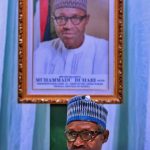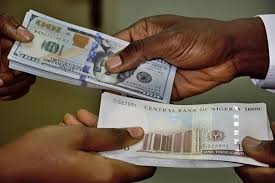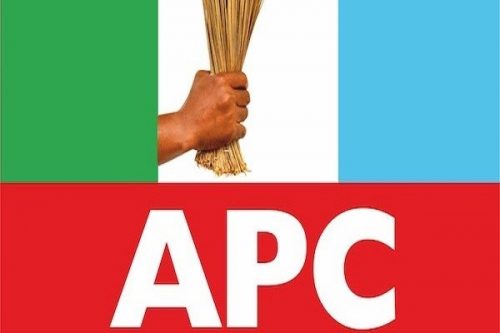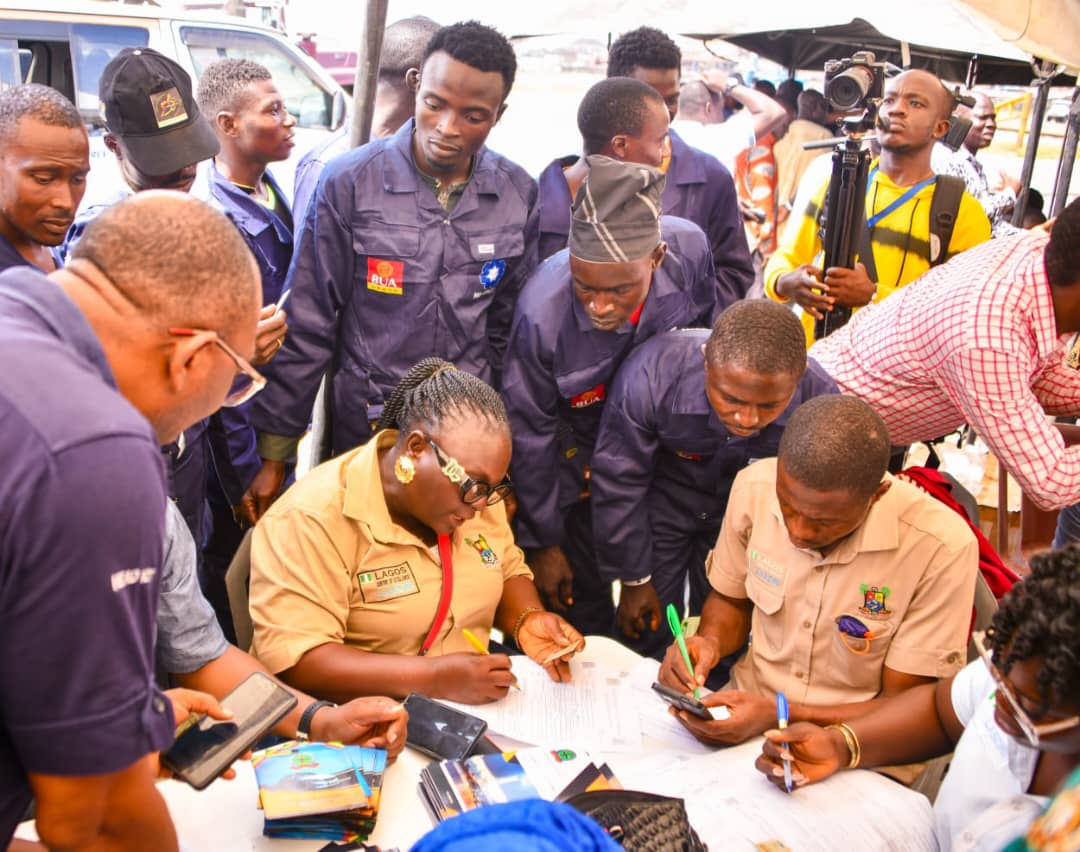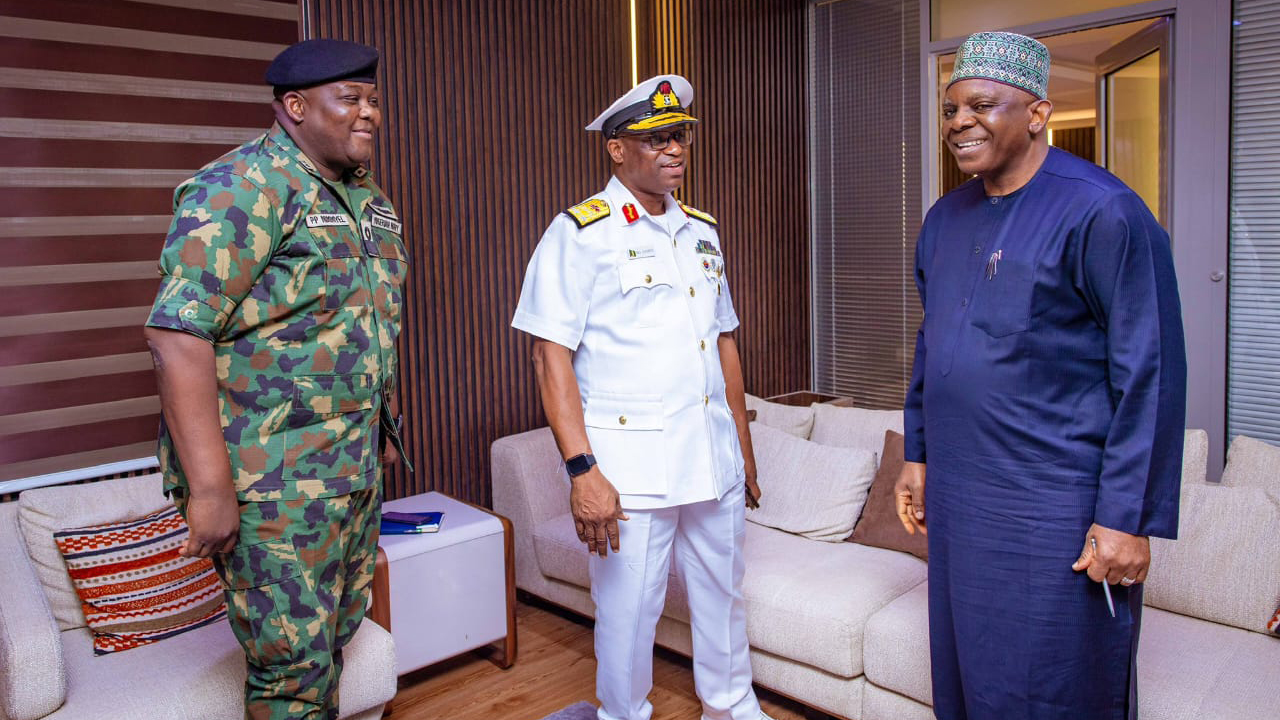Atiku, hunted by ghost of August 31, 2013 walkout
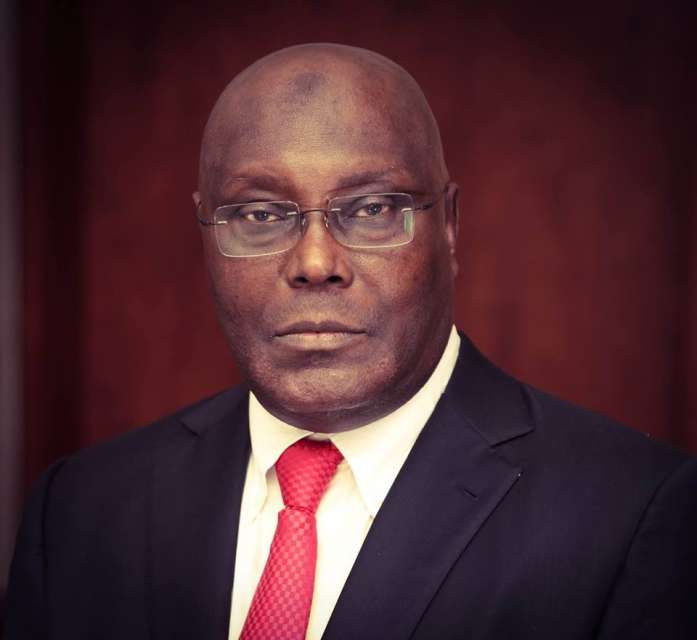
It will take a while for the Peoples Democratic Party (PDP) to recover from the imbroglio that marked their August 31, 2013 national convention when seven governors led by former Vice President Atiku Abubakar stormed out of the convention ground, held at the Eagles Square Abuja, citing imposition of candidate, impunity and lack of internal democracy as reasons.
The frustration Atiku suffered was as a result of the desire by former President Goodluck Jonathan to seek re-election in the 2015 general election which according to the group runs contrary of an earlier agreement that Jonathan should serve a single term while power would return to the Northern part of the country,
but they alleged that Jonathan has hijacked the convention so as to raise a National Working Committee loyal to him, who will use the party machinery to ensure his emergence.
Dissatisfied with the PDP, he entered into another marriage with the All Progressives Congress (APC), a marriage which recently turned sour.
However, the entrance of Atiku and his cohorts into the APC was the magic wand that booted former President Jonathan out of office, fractionalised the PDP and left her in a state of paralysis.
At a special dinner organised for Atiku and his followers under the auspices of the Progressives Governors Forum (PGF), Atiku said that the governors who joined the APC made victory possible for the party and ensured the defeat of PDP.
Also speaking at the said dinner, Imo State governor, Rochas Okorocha described the contributions of the governors as very key to the revolution that saw the historic victory of an opposition party over the ruling party in the country.
“Make no mistake about it, without the five governors that joined the APC in 2013, we will not be here today.
Anyone who understands the power and might of the Federal Government, especially under a vindictive leadership, knows the enormous risks taken by Governors Rabiu Musa Kwankwaso, Aliyu Magatarda Wammako, Abdulfatah Ahmed
and the lion-heart Rotimi Amaechi. What happened to our colleague, Murtala Nyako could have happened to anyone of them,” Okorocha said.
In the APC, Atiku was at every moment focusing on his presidential ambition and left nothing to chance, starting with the election of his loyalist like Mr Timi Frank into the APC NWC.
He never pretended about his desire to become the number one citizen of the country, an ambition which has hit the rocks four times.
During his sojourn with the Action Congress of Nigeria (ACN), it was evident that he would be excluded from the presidential race through indictments by a teleguided administrative panel, but was salvaged by the court.
He was in court six times and he triumphed. His ability to confront challenges to his political career aptly underscores his audacity and courage.
In the aborted Third Republic, he was positioned for the prime position by his mentor, the late Shehu Yar’Adua, under the Peoples Democratic Movement (PDM), when Gen. Ibrahim Babangida excluded Yar’Adua and other politicians from participating in partisan politics.
Later at the Jos convention of the proscribed Social Democratic Party (SDP), Atiku stepped down for the late Chief Moshood Abiola, who emerged as the party’s flag bearer.
Although he was nominated as a vice presidential aspirant, his candidature was rejected, following pressures on Abiola that the party’s former National Chairman, Alhaji Babagana Kingibe, replace Atiku as SDP vice presidential nominee.
While he was still in the Nigerian Customs Service, the young officer used all his opportunities to gather international linkages that provided the financial backbone for his political movement. He did not hesitate to resign from the service when he felt secured in business and politics.
Ahead of the 2019 election, the Turaki of Adamawa has returned to his hustling.
He is building new bridges and gathering his foot soldiers in anticipation of a titanic battle which is nothing less that becoming the president of the most populous black country in the world.
He is a political warrior; wealthy and influential, a consummate politician, great mobilizer, master strategist and crowd puller.
Before his incursions into politics, he had shown traits of leadership, built a network cutting across the business class, the aristocrats, traditional rulers and the political elites across the country.
He has fought many battles in the past, winning some and losing some. When he wins, he consolidates his gains, but always eager to rise swiftly after each fall. He often positions himself as a factor and indispensable political bulldozer.
When democratic institutions were restored in 1999 after several years of military incursions, Atiku became a foundation member of the Peoples Democratic Party (PDP), contested and won the office of the Adamawa State governor before he was picked by Chief Olusegun Obasanjo as his running mate.
The Turaki of Adamawa galvanized his political machinery in the North to not only secure victory for the PDP, but also worked closely with his boss to ensure that the administration gathers all the support it needed.
Among other duties, he was the head of the National Council on Privatization, that sold most of the nations’ critical assets. Some of these assets no doubt were sold to persons close to the Vice President.
In the post-Yar’Adua era, Atiku was perceived as the leader of the influential PDM caucus in the PDP.
Other members of the group are the late Chief Sunday Afolabi, Chief Tony Anenih, Prof. Ango Abdullahi, Senator Jibril Martins-Kuye, Alhaji Lawal Kaita, Chief Dapo Sarunmi, Olorunfunmi Basorun, Chief Yomi Edu, Senator Rashidi Ladoja, Senator Tony Adefuye, Mrs. Onikepo Oshodi, Mrs. Titilayo Ajanaku, and the late Alhaji Abubakar Rimi.
For his successful election in 1999, Chief Olusegun Obasanjo leaned on the group. He preferred Atiku to Abubakar Rimi, owing to his political antecedents as a confidant and ally of the late Tafida Katsina.
Both of them won the poll in 1999. As vice president, the Turaki Adamawa was the de facto president, controlling all key Departments and Ministry’s like the Ministry of Finance and most revenue Agencies.
With his entrance into the APC, Atiku, increased his stake in the party when he defected with seven governors who were members of the PDP; bringing it to a total 18 APC state governors.
Atiku and his group joined the APC in a carnival and were received by the APC leader, former Lagos State governor, Bola Tinubu; APC National Chairman, Bisi Akande.
Those that crossed with him include then Kano State governor, Rabiu Kwankwaso: former Kwara State governor and serving Senate President, Bukola Saraki;
former Nasarawa State governor and serving senator, Abdullahi Adamu; former Bayelsa State governor, Timipre Sylva; and then Adamawa State governor, Murtala Nyako.
Others were former Speaker of the House of Representatives, Aminu Masari; then Rivers State governor, Rotimi Amaechi; National Secretary of the PDP, Olagunsoye Oyinlola;
former Abia State governor, Ogbonnaya Onu; former PDP vice chairman, Sam Jaja;then Kwara State governor, Abdulfatah Ahmen and his Niger State counterpart.
During the APC Presidential primary election which was held in Lagos in 2015, Atiku witnessed another round of frustration to his presidential ambition as he was floored in the presidential primaries, coming third after now President Muhammadu Buhari and Senator Musa Kwankwaso.
Justifying his intentions, he said that being one of the architects of the democratic dispensation, he was eligible. “I have always fought against military rule.
I have also fought for internal democracy. I have always fought against one-party state because it leads to dictatorship.”
But APC stopped at nothing to cut Atiku to size.
They started by uprooting all members of NWC loyal to him, culminating in the expulsion of Timi Frank, the Deputy National Publicity Secretary, who was denied right of succession when the substantive Publicity Secretary, Lai Mohammed was appointed Minister of Information and Culture.
When he could no longer contain the situation, Atiku Abubakar voiced out that he had been side-lined by President Buhari’s government which he helped to defeat the PDP government in 2015.
Speaking from Yola in Adamawa State where he celebrated last year’s Eid-el- Kabir festival, Atiku said, “Honestly speaking, I’m still a member of the APC; I was part of all the processes, including campaigns until success was achieved.
“But sadly, soon after the formation of government; I was side-lined, I have no any relationship with the government, I’ve not been contacted even once to comment on anything and in turn, I maintained my distance.
They used our money and influence to get to where they are, but three years down the line, this is where we are.”
The accusation came same day the Minister of Women Affairs, Aisha Alhassan, said she would support the former Vice President as against Buhari if he indicates Presidential interest in 2019.
He has tried as much as possible to avoid public criticism of Buhari’s government and had applauded their successes in the fight against Boko Haram, but said total defeat of the sect has remained elusive to the Buhari government.
He said, “the ruling government had failed in many fronts.
“Yes, there were successes, but not comprehensive success, because the Boko Haram miscreants are still very active, killing our people and many local government councils in Borno and Yobe are under their firm grip. People cannot dare go back to their dwellings.
“This thing baffles me; I never imagined that Nigeria will fight a protracted battle with Boko Haram for five years.
At a time, we fought the Biafra war, which was more complicated because of the terrain in the South, but the Biafran soldiers were roundly subdued in 30 months.
But here we are, fighting an endless battle with the Boko Haram and there’s no end in sight.”
On corruption, Atiku said little has been achieved, asking “How many people were arrested, prosecuted and jailed? How much was recovered from the looters?”
Juxtaposing it with the achievements of the Obasanjo administration where he was the Vice President, Atiku continued, “When we came on board in 1999, I remember we recovered between $4.5 and $4.7 billion from those that looted under (Late Sani) Abacha,” he said.
Before the 2015 poll, Atiku tried to revive his relationship with his boss, Obasanjo following several visits to Ota, but it was fruitless.
When questioned about his credibility, he challenged his accusers to come out with impeccable proof.
“I am not a corrupt politician. Have I been indicted in any way for corruption? I served under an administration that has waged war against corruption,” he stressed.
Atiku’s major blow from the Buhari’s government which informed his final decision to exit the APC may not be unconnected with the recent attempt by the Buhari government to frustrate and revoke all contracts handled by any business entity associated with him.
Buhari’s government recently revoked the boats pilotage monitoring and supervision agreement that the Nigerian Ports Authority (NPA) signed with Intels Nigeria Limited, a leading integrated logistics and facilities services provider in the maritime and oil and gas logistics sectors of the country with links to Atiku, saying that the contract was void ab initio.
Just as the company was strategising to recover from this huge setback, the Federal Government announced the revocation of the residence permits of the Expatriate staff in Intels and five other Nigerian companies.
The Comptroller General of Immigration Service, Muhammad Babandede, MFR in a statement, said that the action was sequel to the withdrawal of the operational licenses of the affected companies by the Oil and Gas Free Zones Authority.
It gave the affected staff November 30 deadline to leave the country or be classified as illegal immigrants.
Political analysts have described this development as a witch hunt and an attempt to frustrate Atiku from being vocal and realising his political ambition.
To prepare his eventual re-entry into PDP, many of his men have already returned to the PDP strategising for his eventual return.
Atiku also maintained his allies especially in the South East who refused to dump the PDP for the APC. Those close to Atiku said his biggest ambition in life is to become the president.
But clearly, actualising this tall dream will be very difficult in the APC, going by recent developments, including Buhari’s recent vigour and the body language of those around him.
If Atiku eventually joins the PDP, then he must first assuage former President Goodluck Jonathan, so that he can key into his programme and also ask for forgiveness for frustrating his re-election.
He must also square up with Jonathan, bury his pride and realise that Jonathan by providence is a leader in the party.
Atiku will also face a credibility test as his incessant decamping from the PDP is still a factor to contend with. Many have described him as an inconsistent politician, who jumps ship after losing his presidential election.
Although he stated that he was deceived into joining the APC, he must come down and make amends for his betrayals.
Pundits has also advised the former Vice-President to bury his Presidential dreams temporarily as part of his atonement.
He should also champion the cause of rebuilding the party and allow democratic process not financial advantage to inform delegates decisions.
Meanwhile, aspirants like former Jigawa State governor Sule Lamido, Gombe State governor Ibrahim Dankwambo, and PDP National Caretaker Committee Chairman, Governor Ayo Fayose, Senator Ahmed Makarfi are also jostling for the presidency come 2019.
How Atiku intends to floor these aspirants is a puzzle waiting to be solved.
Quote
If Atiku eventually joins the PDP, then he must first assuage former President Goodluck Jonathan, so that he can key into his programme and also ask for forgiveness for frustrating his re-election. He must also square up with Jonathan, bury his pride and realise that Jonathan by providence is a leader in the party. Atiku will also face a credibility test as his incessant decamping from the PDP is still a factor to contend with. Many have described him as an inconsistent politician, who jumps ship after losing his presidential election.



